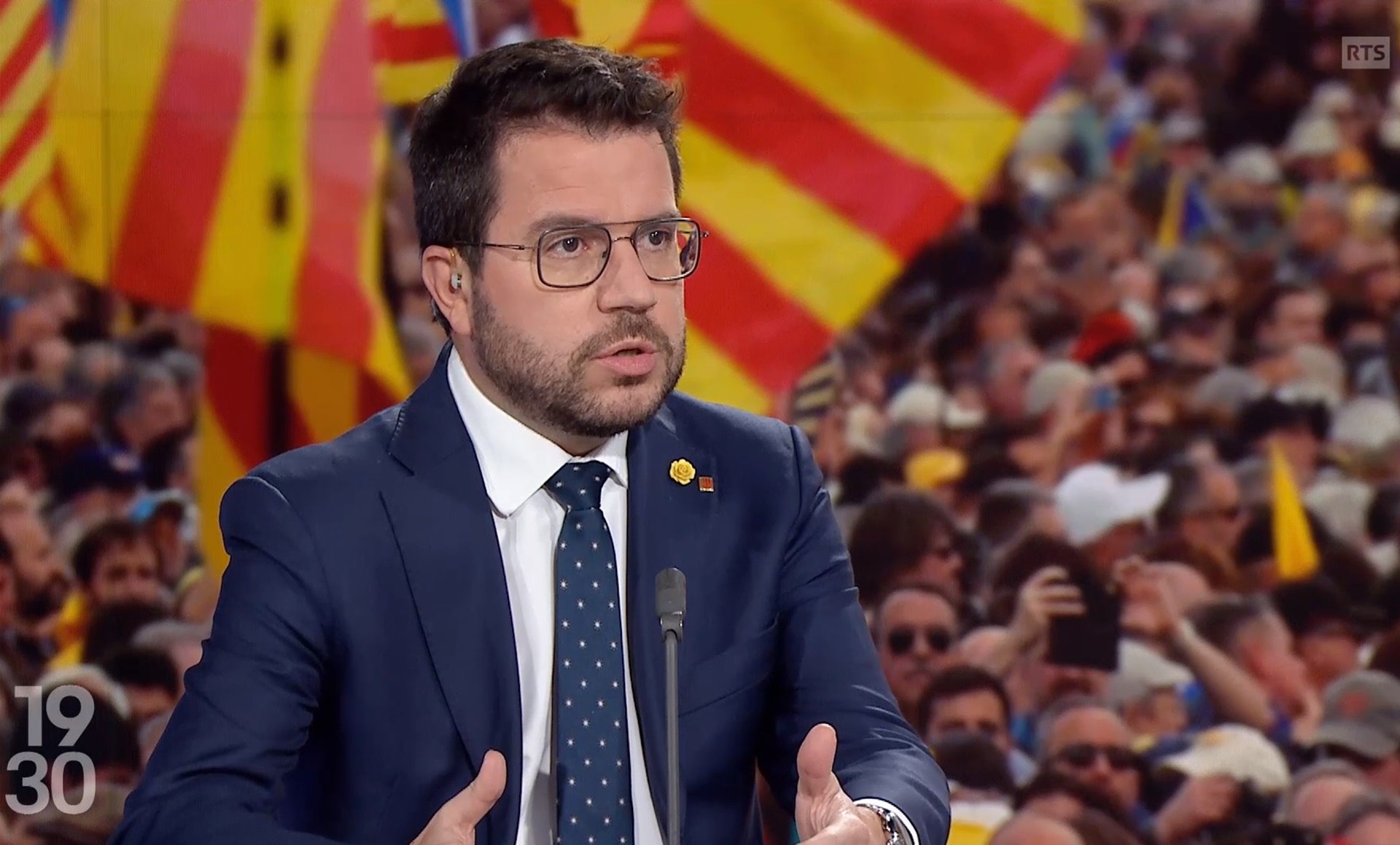The president of Catalonia, Pere Aragonès, has defended the importance of Spain's amnesty law, currently passing through parliament which he considers to be the "first step to resolving the political conflict between Spain and Catalonia". In an interview on Swiss public television RTS (see French-subtitled video below) this Thursday, he insisted on holding a referendum in Catalonia: "It is the will of the majority of Catalans to be able to democratically decide the future of the country in a referendum". "We defend the independence of Catalonia, I have always defended it", he affirmed. In this regard, he asserted that the amnesty, which will wipe the slate clean for those prosecuted for independence process offences, should allow "negotiations to be opened to set the conditions of this referendum, which is our proposal".
Aragonès asserted that reaching agreement between the Spanish government and the Catalan Generalitat is necessary in order to "find a solution" to the conflict, an agreement that, according to him, "does not exclude others such as in the social, educational, health and for the improvement of public transport". "My government has decided to seek an agreement between democratic governments for a solution and it is based on this agreement that we will be able to organize a referendum," said the president of the Generalitat.
Pere Aragonès speaks to RTS (subtitles in French available): "The will of Catalans is to decide in a referendum"
Constitutionality of the amnesty
Pere Aragonès maintained that the amnesty law "is fully constitutional", and that, therefore, it is drafted respecting the Spanish Constitution and the state's legal system. In addition, he recalled that "there is a precedent from 1977, which allowed an amnesty for, among others, Francoist leaders."
As well, the president explained that during his visit to Switzerland he met with Marta Rovira, exiled general secretary of his own political party Catalan Republican Left (ERC), who "unfortunately has to reside in Geneva to preserve her rights and freedoms in the face of the repression she is suffering."
Defence of Catalonia's refugee policies
At the same time, the president of the Generalitat attended the UNHCR forum on regional and local action on migration and refugees this Thursday, and during his speech he called for sub-state governments in migration policies to not limit themselves to being "pure managers". Aragonès lamented the "lack of more legislative tools and instruments" for sub-state governments in the decision-making capacity regarding the reception of refugees and also in migration policies. "It's certainly one of the biggest challenges for local governments and governments of stateless nations."
"Providing the best care to refugees is not only about being ready to respond to an emergency and start a reception process while thinking about the complete development of the individual. It does not only depend on human and material services and resources. It also depends on the capacity of decision or co-decision on the reception of refugees and to be part of the decision-making process in migration policies", reaffirmed Aragonès.

